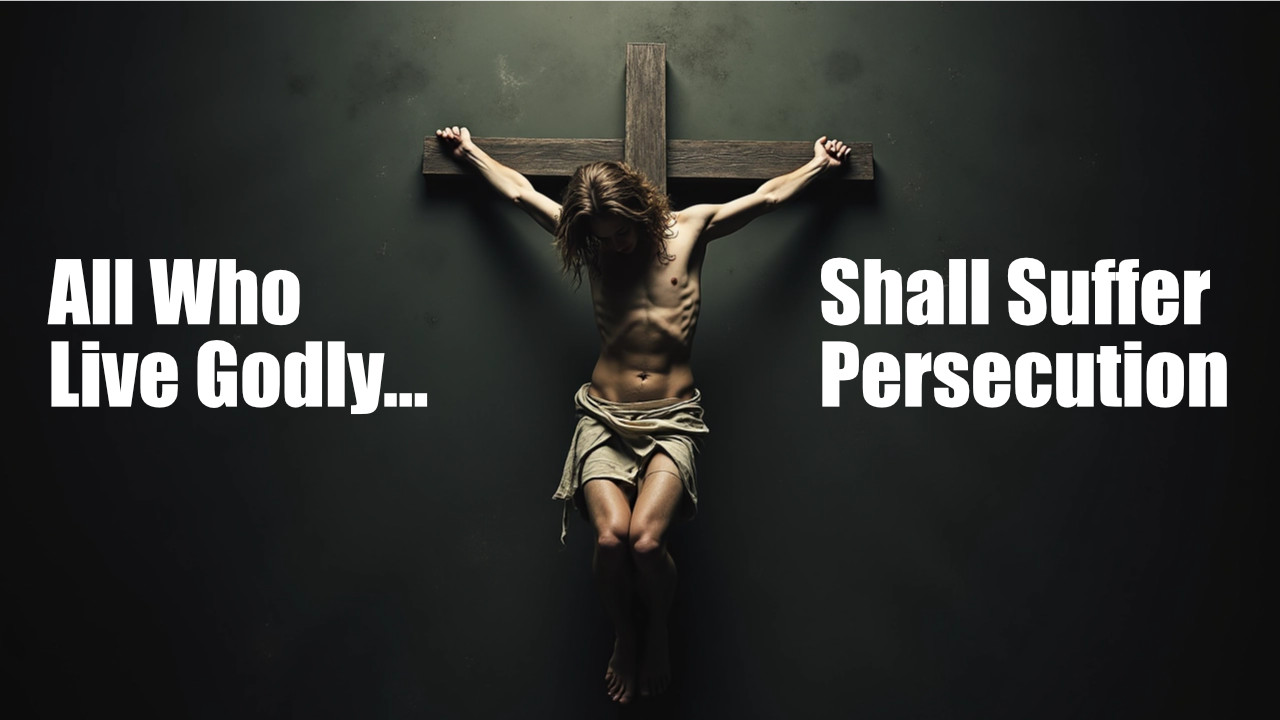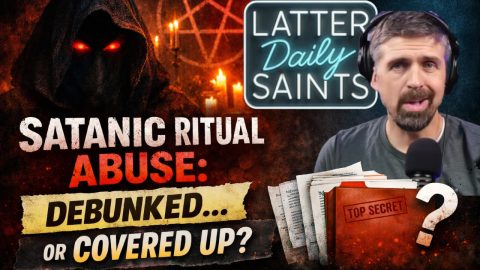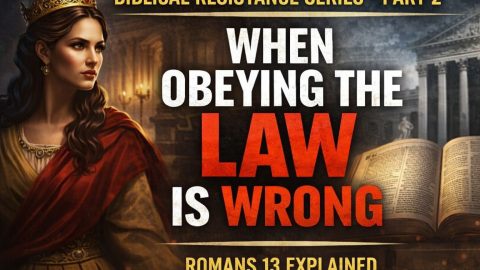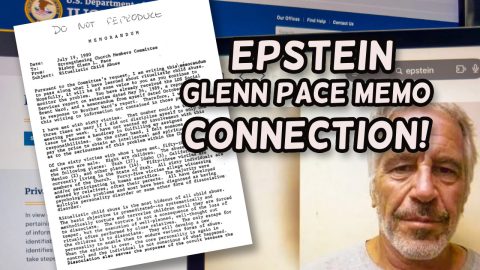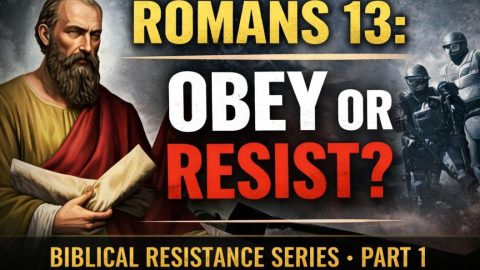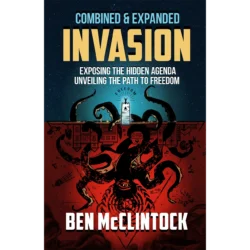What happens in your life when you decide to take a stand with and for Christ? What do the scriptures say? Am I on the right track? Find out!
This is an excerpt from “Sacrifice For Liberty,” which you can watch in full, for FREE, here: https://www.dropbox.com/scl/fi/rpmwrtzoenrlu7u0dsszp/June-20-2022-sacrifice-for-liberty.mp4?rlkey=nvuwapub63dy1yn7oqpyxwna7&st=90rabdzu&dl=0
Help support ad-free content with a one time donation or becoming a member today.
Thank you to our sponsors
https://connollyandsonsconcrete.com/
https://www.dentistry4health.org
http://www.highercallingfirearms.com
http://www.americanappliancehvac.com
https://insurewithcompass.com/sbarlow.html
TRANSCRIPT
So we can see that these things—when we follow the cause of Christ—we learn in 2 Timothy: “All that will live godly in Christ Jesus shall suffer persecution.” I show those examples for liberty with the Founding Fathers because the cause of Christ is the cause of liberty—it is one and the same.
And so they suffered persecution. The same thing with the early Christian fathers. All of those examples were because the government was oppressing the people, and they stood for their liberty—the cause of Christ—and so they suffered persecution.
And so here we learn in the New Testament that all who live godly in Christ Jesus shall suffer persecution.
This is something I think about a lot. Obviously, I’m not receiving anything close to the persecution that we’ve covered tonight, but there are certain things that have happened that make me think, “Okay, hopefully that shows that I’m trying to do my best to live godly by promoting the cause of Christ—or the cause of liberty.”
But if I’m not receiving persecution, I ask myself: am I standing up? Am I proving that I am trying to live—or that I am living—godly in Christ Jesus? And so that’s something we have to look at: are we dedicating ourselves as the Founding Fathers did?
Are we receiving the fruits of that?
Yes.
I’d like to say something that I have thought for many years now—since I’ve been with you since, what, 2016 or something like that? 2017?
At one point, I was reading my scriptures—this is Alma 46, the Title of Liberty—and how he sent runners with the Title of Liberty on a pole, and sent runners to the outlying areas of his area of responsibility, calling these people to gather together for the cause of liberty. And it hit me—that’s what you’re doing.
You’re sending runners. You’re doing it electronically. You’re doing it by gathering us together for these meetings and promoting the cause of liberty.
And I thought of that, that when you’re reaching out now more and looking to start groups in different states and in different areas of a state—that that’s what you’re doing. It’s exactly what Moroni did, but you’re doing it electronically. And I think it’s really cool that you’re gathering the forces so that you can become strong and big to fight these enemies.
Appreciate that, Carmen. I don’t want to put this on me.
I’m hoping we all take this as a personal inventory on what are we doing as individuals. And we can all put that together and magnify our efforts together. So: are we putting forth the effort?
And this, I think, is important right here, because it says all shall receive persecution if we are doing this. If X, then Y. And so if we’re not getting the Y, then that means we need to look at the X—are we performing that thing as we should be?
If not, that’s a great point to be able to get our feet wet. Because I know that to suffer persecution is difficult, and it’s scary. And so I’ve talked about nullification and getting our toes wet and getting practice. And I think that same thing applies to all aspects of liberty.
Let’s expand ourselves. Let’s get uncomfortable.
But—it’s difficult. So we want to make sure that we’re doing it in a way that’s not going to scare us off and make sure we don’t do it. We recognize: this is a big, scary thing. But let’s just take it one step at a time, in our comfort level, to get there.
And as we get more persecution, that’s more blessings that we can see that are promised along these lines as well.
We look at the Lord here in Doctrine and Covenants section 101. It talks about the difference between those who are worried about their lives, versus those who are worried about doing what’s right. It says:
“And all they who suffer persecution for my name, and endure in faith—though they are called to lay down their lives for my sake—yet shall they partake of all this glory.
Wherefore, fear not even unto death. For in this world your joy is not full, but in me your joy is full.”
So don’t worry about losing out on any kind of supposed joy that you might have here—but recognize the long-term picture.
“Therefore, care not for the body, neither the life of the body, but care for the soul, and for the life of the soul.
And seek the face of the Lord always, that in patience ye may possess your souls, and ye shall have eternal life.”
“When men are called unto mine everlasting gospel and covenant with an everlasting covenant, they are accounted as the salt of the earth, and the savor of men.”
We are the Lord’s salt when we are putting forward the courage to do what’s right, no matter how scary it might be because of what men are doing to us.
“They are called to be the savor of men. Therefore, if that salt of the earth lose its savor, behold, it is henceforth good for nothing—only to be cast out and trodden under the feet of men.”
If we are too scared to do what’s right—because of X, Y, and Z that we mentioned in the beginning—then we are no longer of value to the work that God has put forward for us to do for the cause of liberty.
It’s the cause of Christ.
We’ve mentioned that since the very beginning—since the war in heaven—and how it was Christ’s side that was fighting for agency. And it is those that are following Satan that are working to destroy the liberty of man.
And so, since the very beginning—since before the world was—it was the cause of Christ to fight for liberty. Fighting for the cause of liberty meant that we were fighting for Christ and that it allowed us to get a body in the first place.
We cannot separate the cause of Christ from the cause of liberty. They are one and the same.
If you say, “I’m fighting for the cause of liberty,” you are saying you are fighting for the cause of Christ. And if you are saying that you fight for the cause of Christ, you’d better be fighting for the cause of liberty—because if you are not, you are not doing the former.
And so we will have lost—meaning, our value as salt is worthless—and we will be just cast out as garbage.
So we need to remember that liberty is worth the sacrifice. We do have to think of things long-term, and not just the short-term scariness of what’s going on.
As things progress, we can see that—with the things that were going on with the fake pandemic, and really the conspiracy as we look throughout time, whether it was 9/11 or the fake pandemic—now we see it with the economy going and how they are setting up things like social credit scores.
The conspiracy is really upping their game and speeding things up.
And so we really have to start now—just like we were taught as youth—that we have to say, “You know what? I’m going to say no to immorality. I’m going to say no to drugs and alcohol before those things are presented before me.”
Because if I don’t make that decision in advance, it will be difficult—when that situation is put before me—to make the right decision.
And so as things get escalated in this fight for liberty, I wanted to go over these things so we could take personal account with ourselves. That each of us as individuals says: “What decision can I make now, when this scary situation happens in the future?”
Or: “Take account of how I’ve done up till now. What should I have done better at? What can I do better at in the future?”
That way we can always be improving. We don’t look at our mistakes to beat ourselves up. We look at our mistakes to say, “How do I do better and improve?”
Otherwise, they’re not helpful.

